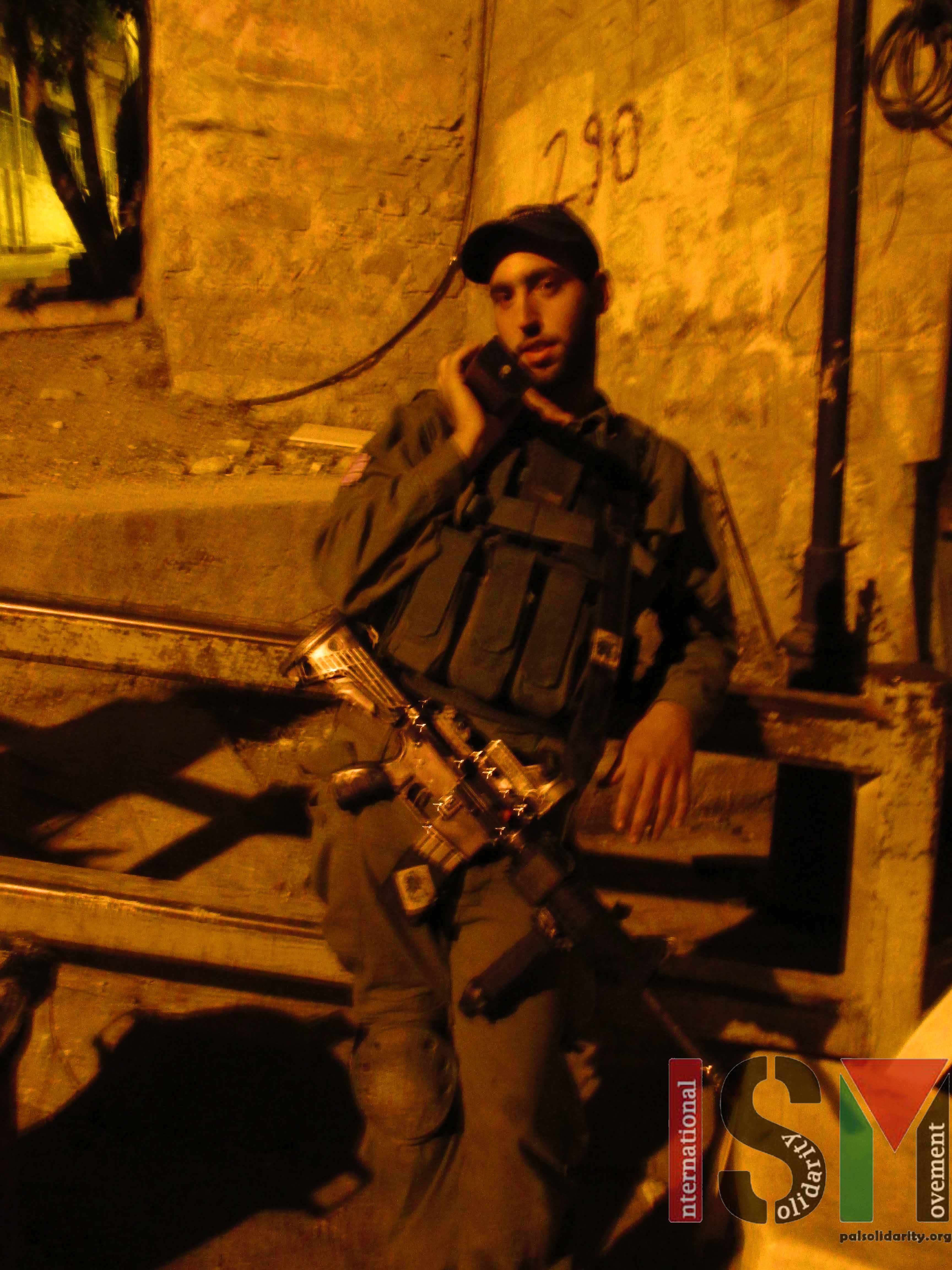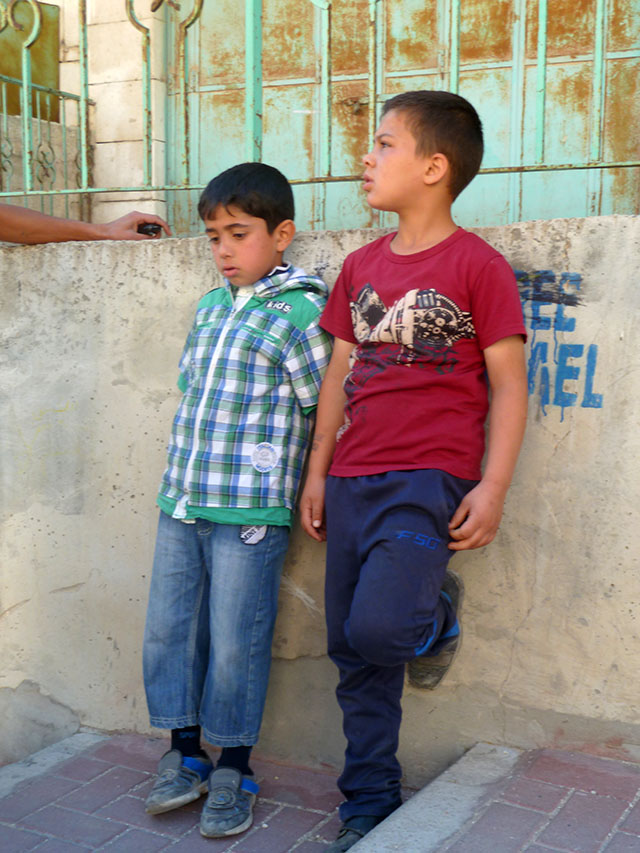Tag: Checkpoint 56
-
Injured and forced to walk
27th August 2014 | International Solidarity Movement, Khalil team | Hebron, Occupied Palestine It was a warm Saturday night in late August in al-Khalil (Hebron). For the Palestinian children school was starting the next day, and a feeling of anticipation and excitement for a new year of learning floated over the hot Palestinian night. A group of…
-
Israeli soldiers detain 7 and 10-year-old boys in Hebron
1st June 2014 | International Solidarity Movement, Khalil team | Hebron, Occupied Palestine This morning in al-Khalil (Hebron) Israeli forces detained two young Palestinian boys, 10-year-old Fares Abu Senene and 7-year-old Haitham Asrawi for one hour. ISM activists spoke to an eyewitness who explained that the boys has been held for at least 30 minutes. For one of…
-
Video – Father and 5-year-old son illegally detained in occupied Hebron
9th July 2013 | International Solidarity Movement, Khalil Team | Hebron, Occupied Palestine On July 9th at around 4pm in occupied Hebron, Israeli soldiers arrested and held a five-year-old boy in their military base along with his father. They kept the father handcuffed and blindfolded, and transferred them to the checkpoint separating the Israeli and…


